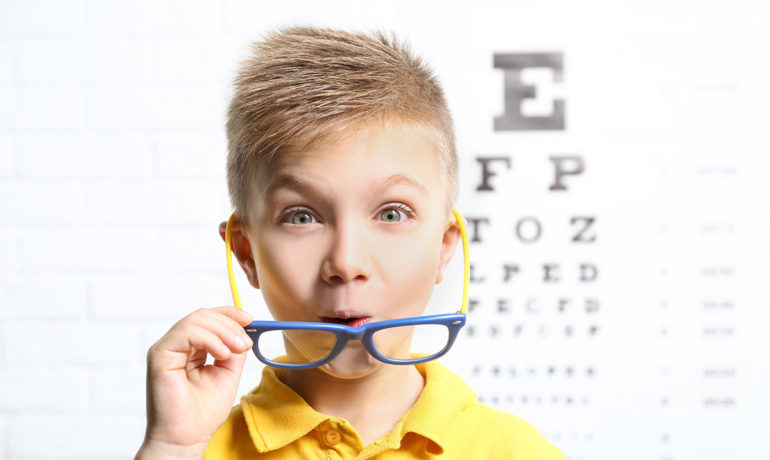Children’s eyes are different from those of adults, and they require special care. The best pediatric eye doctor for your child depends on their specific needs and situation.
Whether your child’s pediatrician has referred you, your child has complained about their vision, or you’ve noticed a specific problem with your child’s eyes, consulting with the best ophthalmologist, orthoptist, or optometrist near you is vital.
Which type of eye doctor should your child see? Although each can provide many of the same elements of eye care, such as prescribing eyeglasses and medications and performing vision testing, there are some important differences.
When to See an Optometrist Near You
Basic children’s eye care usually starts with a consultation with a pediatric optometrist. These eye doctors are often the first step in addressing eye issues in children. Optometrists are doctors who provide routine eye health services. You might think of them as primary care providers for the eyes.
An optometrist will assess eye movement and alignment, visual acuity, and visual clarity. In addition, they will also assess your child’s visual depth perception, peripheral vision, and eye pressure. This type of eye doctor can also determine the presence of color-blindness and to what degree it impacts your child’s vision.
A pediatric optometrist will also identify many other eye-related conditions and provide medications like eye ointments and drops when warranted. They can also prescribe corrective lenses.
Seeing an Ophthalmologist for Your Child
Ophthalmologists are eye doctors who see children with a diagnosed eye health condition. These medical doctors perform eye surgeries if necessary and have undergone four years of medical school, a three-year residency in ophthalmology, and usually, additional years in a fellowship training program.
You should seek a referral to an ophthalmologist if your child has a complex eye condition or disease that may require advanced medical treatment or surgery.
When Is Seeing a Developmental Optometrist Necessary?
These highly trained optometrists address specific eye problems in children related to eye alignment, eye movement, vision, and learning related visual difficulties. Developmental Optometrists provide specialized testing to create comprehensive vision therapy treatment plans for children who need vision care that is above and beyond the routine. I
When and Where to Start with Children’s Eye Care
Unless your child has been diagnosed with a specific problem or condition with their vision, you most likely will begin by seeing an optometrist near you. Regular eye health exams should be done for children at the ages of six months, three years, when they enter kindergarten, and every two years after.
Vision care includes specialized examinations and procedures that allow optometrists to measure sight clarity at almost any age, even in infants. The eyes of children develop rapidly, especially during the first few years. Therefore, vision problems must be identified and treated as early as possible.
It’s estimated that about 25 percent of school-age children in grades K–6 have eye issues that interfere with normal visual development. If you’ve noticed that your child seems to be struggling in school, a vision problem could be to blame.
Schedule an Appointment with a Pediatric Optometrist in Rancho Santa Fe
Rancho Santa Fe Optometry provides eye examinations and treatment, including eyewear and vision therapy, to children and adults throughout the greater North County and San Diego area.
Our professional staff, led by Dr. Weiss, can provide the specialized care that young eyes require. We also help with vision problems for children with special needs.
Contact us to make an appointment for a comprehensive eye exam from Rancho Santa Fe Optometry.
At Rancho Santa Fe Optometry we offer comprehensive eye examinations for all ages. With a focus on children’s vision and vision therapy, our doctors test for visual acuity, visual efficiency skills and visual information processing starting in early infancy. The practice also provides diagnosis, treatment and management of diseases that affect the human eye and visual system, including dry eye syndrome, diabetic retinopathy, cataracts, macular degeneration and keratoconus.
